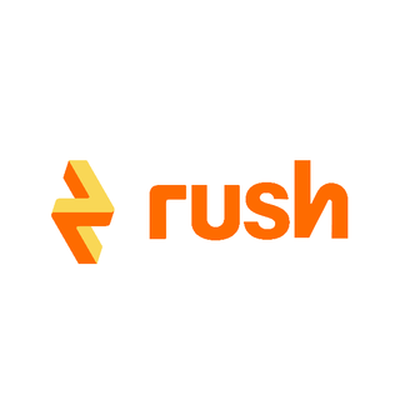Virtual Agent vs. Chatbot Technology: Which is Better for My Food Business?
Corps
In the world of artificial intelligence, two popular computer program names are typically interchanged with one another but are entirely different technologies—virtual assistants and chatbots. These can be employed by offline and online food businesses for a smoother customer service run.
What is a chatbot?
Chatbots are computer programs that interact with humans through text and audio. Developers create these programs using Natural Language Processing (NLP) algorithms that enable computers to interpret extensive amounts of natural language data.
Chatbot programs are intelligent enough to understand user queries and perform humanlike conversations through processed language data and advanced technology.
Hence, this technology can perform simple customer service, HR, IT, and marketing tasks. These may include answering FAQs, sending acknowledgments, providing basic information, and more.
What is a virtual assistant?
Virtual assistants are computer programs that perform the functions of a personal assistant and more. These functions include but are not limited to managing schedules, booking appointments, sending reminders, playing music, sharing jokes, managing devices, and hundreds more.
Virtual assistants improve increasingly with time, constantly evolving and getting smarter. Artificial intelligence allows this technology to learn a user's habits and patterns over time. For example, they can understand speech, remember faces, recognize objects, and communicate with other smart devices.
This end-user-focused technology can analyze data and execute tasks via verbal commands. These programs are generally present in portable internet-abled devices such as phones and tablets. Users can use them to conduct simple tasks such as looking for information, sending messages, and making calls.
Virtual Assistants: Advantages and Drawbacks for Businesses
Advantages
- Personalized customer experience
Customers who have concerns or need assistance desire efficient customer service. When customers get impatient, they will not enjoy being passed around from representative to representative or interacting with the basic answers of a chatbot.
Luckily, AI-powered virtual assistants can provide a humanlike interaction to help customers swiftly resolve a situation. In addition, if the request or concern is too complex, these programs may transfer their call to a live agent who can assist.
- Decreased wait times
Every second reduced from a customer service call can save money for a company and make customers happy. An AI-powered virtual assistant can handle common day-to-day concerns without needing a live agent. These programs can also collect data and vital customer information such as order numbers, tracking codes, personal numbers, and other necessary data.
If a virtual assistant passes the concern to a live agent, the information collected can enable the agent to get directly into solving the situation.
- Available 24/7/365
Virtual assistants do not require any time off. They can provide customers with assistance throughout the day, which is essential for companies wanting to keep extended hours but do not want to outsource call center operations. A virtual assistant can serve as a BPO agent and solve challenges or collect customer information throughout the day.
- Enhanced efficiency
Virtual assistants can address recurring requests and save live agents time and effort. This program will automatically organize support tickets and redirect customer inquiries to phone, email, and live chat channels. This will reduce the backlog and decrease the waiting duration for agents and customers.
In addition, live agents will only be used when human intervention is required—saving the business hiring and training costs for new agents.
- Drive new purchases
With the help of virtual assistants, sales and marketing teams can reach customers at a specific point in their shopping journey where they are ready to purchase. Marketers can provide promotional campaigns to entice customers to ask a virtual assistant about a particular product or service, pushing the customer to make the purchase.
Drawbacks
- Data security
Many consumers are accustomed to virtual assistants. However, there are still significant concerns over the data these devices collect and how companies use the information. Some consumers may be suspicious of how the data is stored, who has access to it, and how the information is used.
- Disconnected interaction
Virtual assistants are vastly better than regular bots in terms of interaction. However, they still provide fewer enriching interactions compared to customer service representatives. This may diminish some of the more meaningful engagements that customers can have with traditional customer service.
Chatbot Technology: Advantages and Drawbacks for Businesses
Advantages
- Improved internal communication
Chatbots can improve internal organizational processes and communications. For example, a chatbot can serve as a messenger during onboarding. Recruits can defer to a chatbot for frequently asked questions instead of contacting different departments for answers to their inquiries.
- Data collection
Chatbots can be a great way to collect consumer data. They can communicate with customers and gather information such as names and email addresses, which will be easily accessible by integrating the chatbot with a CRM.
- 24/7 availability
Like virtual assistants, chatbots do not need to rest or sleep. This benefits both customers and businesses as a chatbot assisting customers 24/7 can increase customer satisfaction—and happy customers can improve overall sales.
- Instant solutions
Customer support representatives and live agents can only attend to one customer at a time. Meanwhile, other customers with urgent concerns need to wait. Chatbot software can tackle multiple customer concerns simultaneously and reduce customer wait time.
- Cost-effective
Using chatbots in place of a customer support team can be highly cost-effective. A business with a chatbot will not need to spend on an employee or design a mobile app. In addition, lower workforce expenses may translate into increased profits.
Drawbacks
- No emotion
Chatbots do not respond to customers with personalization or emotion, which may be a significant detractor for many customers.
Customers want to receive empathy and understanding when experiencing an issue with a product or service. If a conversation doesn't follow a particular path, chatbots can't improvise and follow emotional marketing tactics as they lack the human touch. As a result, they may deliver a negative customer experience.
- Higher chances of misunderstanding
A chatbot may have difficulty assisting with a customer's question that isn't straightforward or specific. Chatbots are programmed to answer frequently asked questions with information from their database.
Customers who request something outside this limited list of answerable questions will likely confuse the program and be left without an answer or taken around in circles as the bot tries to understand the question. In either case, this type of customer experience can negatively impact your company's image.
- Not for every business model
Businesses need to be practical with decisions about implementing a chatbot. Specific business models are far too complicated to utilize a chatbot, and certain client bases may not react positively to a chatbot.
- Need to be maintained
Chatbots need routine optimization to provide correct information to customers and have continuous full and proper representation of a company. As user demand, market trends, and business goals shift, a business should update a chatbot accordingly.
This requires analyzing previous bot dialogues to identify the frequently asked questions that the bot receives. Customers will notice if a chatbot is not updated regularly, and customer satisfaction ratings might plummet.
The Final Verdict
Virtual assistants and chatbots are two of the most innovative applications of artificial intelligence in restaurants and food business. For companies, these technologies can save money, time, and effort, making them a more sustainable food business; for customers, they can provide fast and efficient customer service around the clock.
What software should you get for your business? That choice will heavily depend on the AI advantages your company needs to take its operations to the next step and the drawbacks you are willing to handle.











commentaires